Carol Kruchko
President & Chief Mission Officer
Carol Kruchko
President & Chief Mission Officer
With great pride I welcome you to the website of the Central Brain Tumor Registry of the United States (CBTRUS). CBTRUS was established in 1992, making 2023 thirty-one years of providing population-based descriptive statistical data on all primary brain and other central nervous system (CNS) tumors. Our database contains the largest collection of incidence data in the United States for all primary brain and other CNS tumors. After almost three decades of effort, we at CBTRUS have learned a lot. With our research teams led by Co-Scientific Principal Investigators Jill Barnholtz-Sloan, PhD, Associate Director for Informatics and Data Science at the Centers for Biomedical Informatics & Information Technology at the National Cancer Institute (NCI) and intramural NCI researcher in the Division of Cancer Epidemiology and Genetics, Trans-Divisional Research Program, and Quinn Ostrom, PhD, MPH from Duke Cancer Institute, Duke University Medical Center, we are prepared to engage in the changes and opportunities ahead.
The CBTRUS website hosts the CBTRUS Statistical Report published online by Oxford University Press as a Supplement to the premier journal, Neuro-Oncology, of the Society for Neuro-Oncology and is accessed online through a “Free to View” link under Reports and Publications. The CBTRUS Reports are easily referenced through a listing in PubMed. And referenced it is! The CBTRUS Report was at the top of the list of the most cited of the Neuro-Oncology publications and has contributed to the journal’s impact factor. We celebrate our 12th year of publishing in Neuro-Oncology in 2023.
We continue to see the effects of Public Law 107-206 mandating the collection of non-malignant, the so-called benign brain tumors, in cancer registration practices. The incidence of non-malignant brain tumors continues to surpass that of malignant brain tumors (72.1% non-malignant versus 27.9% malignant).
Our peer reviewed publications continue to contribute to the descriptive epidemiology of primary brain tumors. Our experience with reporting brain and CNS tumors continues to provide a template for other countries to establish their own national brain tumor registries.
Changes in cancer registration and brain tumor classification have brought many opportunities for collaborations from old and new friends in both the cancer registry and brain tumor communities and have even been instrumental in bringing these communities together. It has become even more important to work together, and I am very excited to report that biomarkers embedded in the 2016 WHO Classification update are included in cancer collection practices, with collection having begun January 1, 2018. Their distribution for 2018, 2019, and 2020 can be found in our CBTRUS Statistical Report on All Primary Brain and Other Central Nervous System Tumors, 2016-2020 published October 2023 in Neuro-Oncology (see link under Reports and Publications tab).
After a 2-year investigation stimulated by a request from CBTRUS to collect the biomarkers found in the Fifth Edition of WHO Classification of Tumours of the Central Nervous System, I am excited to announce that these biomarkers have been added to the Uniform Data Standards (UDS) that guide cancer collection starting January 1, 2024. A second petition to the UDS Committee has also been approved and will also be implemented starting January 1, 2024. This new rule will enable the coding of brain tumors known as Diffuse Intrinsic Pontine Gliomas (DIPG) directly to the pons site, thereby providing accurate incidence estimations of DIPG in future CBTRUS Reports.
We thank our current funders and look to new ones to partner with us as we embrace new opportunities together.
On behalf of the Board of Directors and Advisors, I would like to thank tumor registrars, central cancer registries, the Centers for Disease and Control National Program of Cancer Registries and the National Cancer Institute Surveillance, Epidemiology and End Results program for providing data for our Statistical Reports, our CBTRUS research team for their analyses, our sponsors for providing financial support and to all those who support our mission.
We will continue to work with excitement, hope, and energy to report all primary brain and other central nervous system tumors in the US accurately and completely.
Sincerely,
Carol Kruchko
President & Chief Mission Officer, CBTRUS
